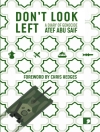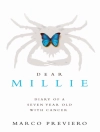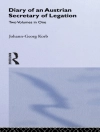In this lavishly illustrated volume, Laura Lee introduces the art of Tokyo-based digital art collective team Lab, which has soared to global fame with its electrifying immersive and interactive installations. The first of its kind, Worlds Unbound: The Art of team Lab provides a comprehensive overview of team Lab’s artistic vision and achievements from its beginnings to its twentieth anniversary in 2021, and illuminates the remarkable scope of team Lab’s groundbreaking art and its fundamental contribution to the pivotal field of new media art.
This original new book, the first scholarly monograph on this popular group, unpacks the popularity and success of the digital immersive environments created worldwide by the Tokyo-based collective, team Lab, from multiple perspectives and addresses the lack of critical appreciation of their work. The book includes an extensive interview with team Lab.
team Lab launched in January 2001 with five members and now comprises more than 600 individuals in a multidisciplinary collaboration of engineers, computer graphics animators, mathematicians, graphic designers, architects, artists and computer programmers.
The digital art collective has attained international celebrity for its electrifying installations that transcend boundaries between gallery, public space and popular entertainment and, judging from press coverage, ticket sales and prolific production, it seems clear team Lab’s success is only on the rise. In 2018, the collective opened the MORI Building DIGITAL ART MUSEUM: team Lab Borderless, a massive technological environment in Tokyo that recorded 2.3 million visitors in its first year of operation – the world’s largest annual number of visitors of any single-artist museum. The same year saw numerous other high-profile immersive exhibitions, including team Lab: Massless in Helsinki, Au-delà des limites in Paris, and team Lab Planets TOKYO, a second exhibition in Tokyo.
These were quickly followed by two new museums, team Lab Borderless Shanghai in 2019 and, in 2020, team Lab Super Nature in Macao. The vast sea of selfies that have emerged from these venues index the collective’s soaring global popularity.
At the same time, team Lab’s works have found art market success and have been exhibited in major museums worldwide, including the National Gallery of Art in Washington DC and Los Angeles County Museum of Art (LACMA), and they are part of the permanent collection of The Art Gallery of New South Wales, the Asian Art Museum of San Francisco, and Amos Rex in Helsinki, among numerous others. This canonization of team Lab’s art belies the fact that the group did not have a traditional gallery start, and in fact team Lab has always engaged in software development and corporate work, in addition to creating artworks. The collective thus boasts an enigmatic status, spanning conventional categories and defying traditional art world pedigree. In so doing it has produced a tremendously rich body of work that speaks to several overlapping issues pertinent to contemporary art while advancing a unique artistic vision.
Primary readership will include artists, art historians and visual studies scholars who are particularly interested in the most recent media art and Japanese contemporary art. It will be an essential resource for students and scholars working in Japanese art, global contemporary art, digital art, augmented reality, expanded cinema and installation art and related fields.
It will also be of more general interest to those who have visited, or hope to visit, team Lab environments worldwide.
Table of Content
Acknowledgements
List of Illustrations
Preface
Introduction
Part I
Chapter One
Ultrasubjective Space
Chapter Two
Japan and Nature
Part II
Chapter Three
Techno-Ecology
Chapter Four
Interactivity and Co-Creation
Conclusion
Epilogue
Interview
Notes
Bibliography
Index
About the author
Laura Lee is an associate professor in the Department of Modern Languages and Linguistics at Florida State University. Her research centers on contemporary visual culture, including screen technologies and intermediality, with special emphasis on Japan.












